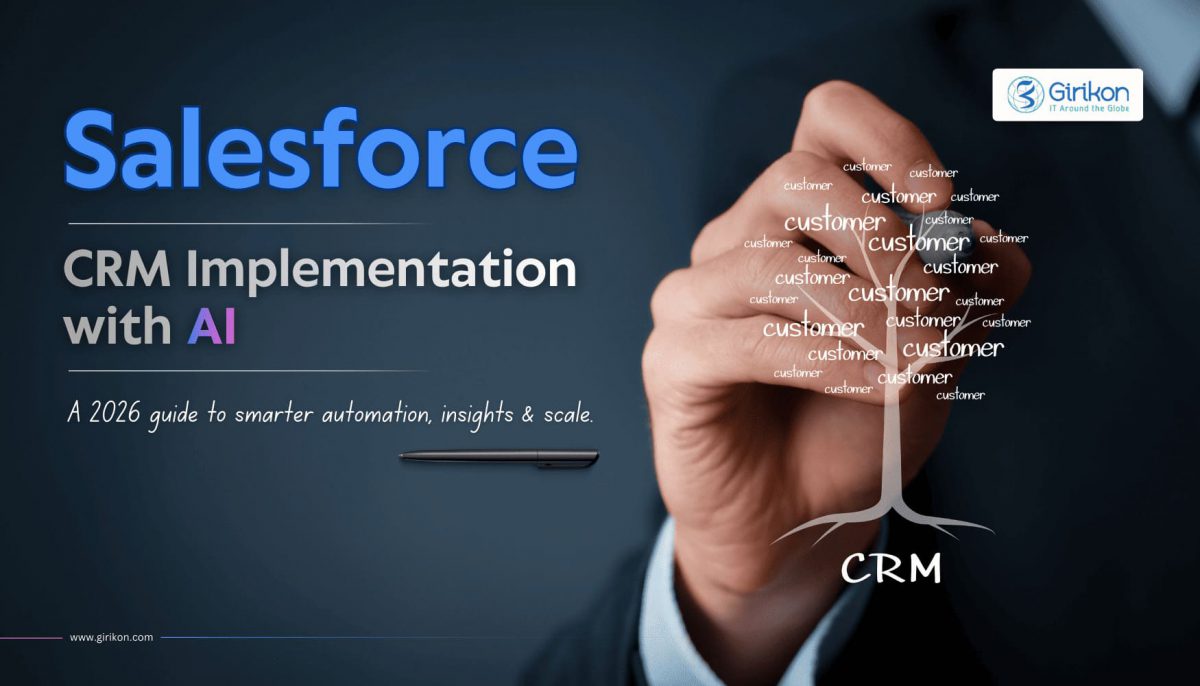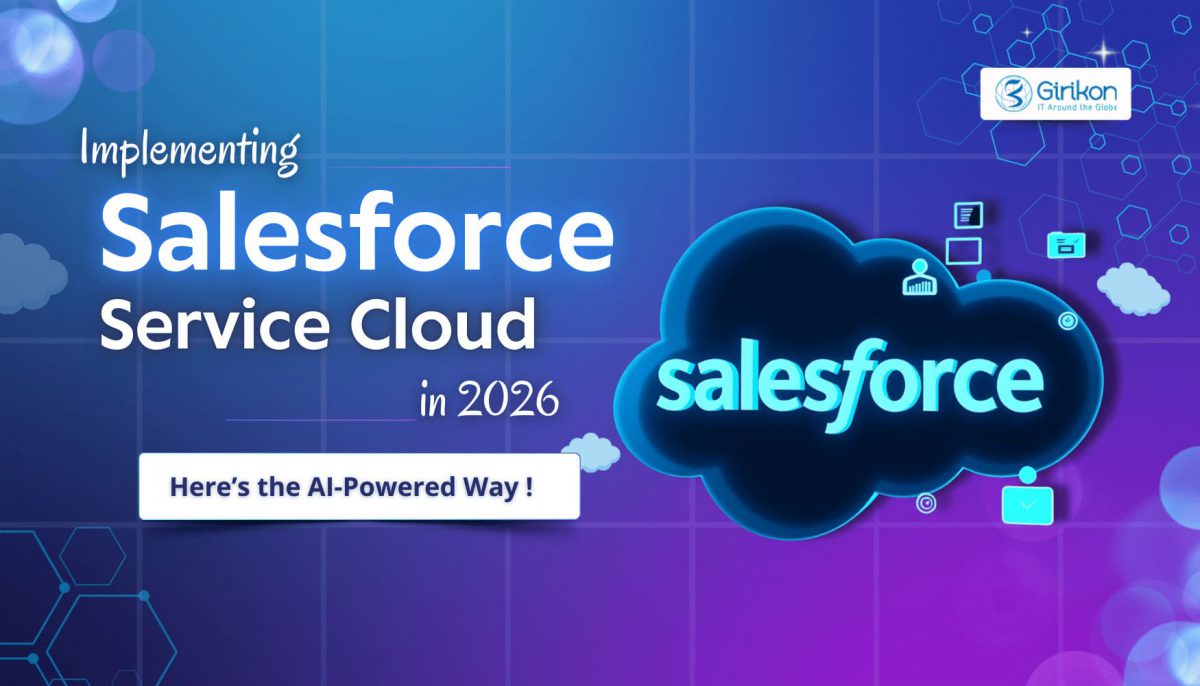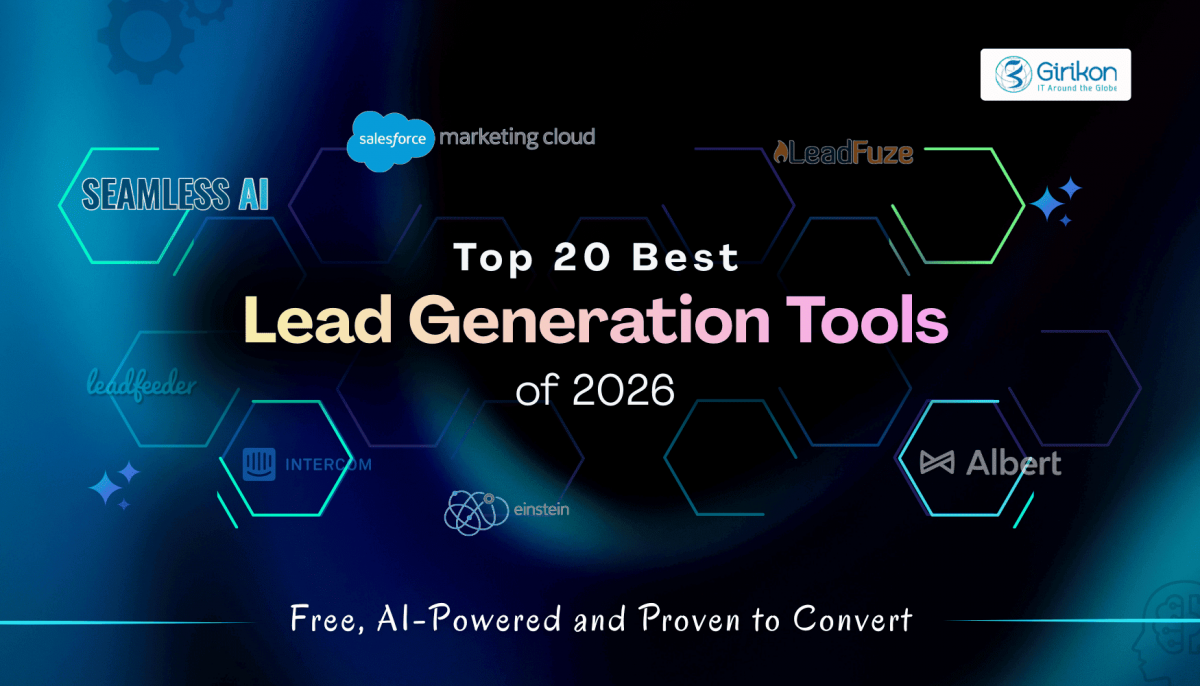In today's competitive business landscape, organizations need to cater to their customers in the best possible way to sustain themselves. Be it providing them with prompt responses to their queries, ensure a personalized experience, or interacting with them through multiple channels, it's important to make your customers fall in love with your business. A robust cloud-based CRM (Customer Relationship Management) like Salesforce offers everything required to manage a healthy customer relationship.
Salesforce – a Software as a Service (SaaS) platform is also known for a powerful application to handle all types of business needs and problems while providing you with cloud-based solutions. One such cloud solution is the Salesforce commerce cloud that offers software as a service solution for eCommerce. It manages the technical roadmap to free you up from all sorts of business demands while figuring out how to move ahead while considering the eCommerce features. This robust commerce cloud is a highly persuasive solution for brands and retailers looking for a one-stop solution to their business problems. You must avail of Salesforce integration services to integrate it within your business ecosystem.
What is SAP Commerce cloud?
The architecture of SAP Commerce Cloud has scalability, agility, and flexibility with native cloud capabilities. It helps deliver personalized digital commerce experiences, simplify digital transformation and accelerate time-to-value. SAP Commerce Cloud empowers companies with out-of-the-box modules such as product content management, order management, and experience management with ready-to-use functionality. These modules can be customized by adding extensions to tailor them as per the specific requirements of different industries.
Benefits of Using Salesforce Commerce Cloud?
The growth of the online market has forced every business to come up with a strong online base. Developing a solid marketing strategy is no longer enough to generate outstanding sales. Rather, it's crucial to have an eCommerce website that exposes your business to the entire world without any geographical limitations, with a very low financial investment, healthy promotions, and more. While multiple platforms offer software solutions for eCommerce, Salesforce eCommerce cloud has become the future of eCommerce.
Why Choose Salesforce Commerce Cloud over SAP Commerce Cloud?
Admin interface: When it comes to the Admin interface, the Salesforce commerce cloud is more advantageous than the SAP commerce cloud as the Salesforce platform is highly user-friendly for daily operations. However, SAP commerce has the control to merge the interface elements that existed in earlier versions. It brings together all the picture-perfect and tailor-made back-office UI via an enhanced product content management (PCM).
Support: Speaking about customer support, Salesforce displays a distinguishable edge over SAP. While users can use a phone, email, tickets, and live chats to connect with Salesforce, SAP users can only utilize phones and emails. Salesforce commerce cloud has more efficient commerce operations as compared to SAP commerce. Additionally, Salesforce commerce cloud supports multiple languages compared to SAP commerce cloud that only supports the English language.
Features: Salesforce again takes an edge over SAP when it comes to superiority and diversity of features. The Salesforce platform offers an extensive range of user-friendly features. It comprises AI-powered personalization, customer segmentation, catalog management, native targeting, pricing, targeted promotion, search engine optimization, and more within the Salesforce commerce cloud. However, SAP Commerce Cloud, on the other hand, presents features like document management, financial management, agile charging, and optimized pricing.
Mobile and Social: When it comes to building mobile apps, Salesforce offers custom-branded and low-code mobile development policies that are simple to use. Organizations can list their customized Android and iOS applications in the Google play store and App Store. On the other hand, SAP helps organizations develop their existing solutions with the help of micro-services and SAAS applications. Though SAP mobile apps support customer self-service, chats, SAP users do not support knowledge supervision videos.
Personalization Experience: Salesforce commerce cloud takes a distinctive edge over SAP commerce cloud when it comes to the personalization for shoppers. SAP, on the other hand, is still following the steps of Salesforce.
Conclusion
Salesforce Commerce Cloud is undoubtedly a better choice when we talk about providing personalized shopping experiences. Besides that, the robust platform can interlink many exceptional capabilities for its ecosystem in Sales Cloud, Service Cloud, Marketing Cloud, Community Cloud, and more. So, if you wish to leverage the benefits of Salesforce commerce cloud, make sure you partner with a certified Salesforce consultant.
Generating greater ROI is the primary goal of every business entity. This is only possible by prioritizing and delivering exceptional customer experience while engaging them in a long-term relationship. However, engaging customers using traditional (outbound) marketing isn't effective as outbound marketing tends to chase potential customers, which makes it intrusive. Inbound marketing helps you gain customers' attention by using various strategies such as SEO, content marketing, social media marketing, and more to create brand awareness and attract potential clients. In other words, it's all about empowering people to reach their goals during their journey with you.
HubSpot's complete CRM platform, which includes sales, marketing, customer service, and content management software, supports the inbound marketing methodology. Combining inbound methodology with the HubSpot software will allow you to grow your business, get customers to purchase more, stay with you longer, and refer their acquaintances. So, if you have made up your mind to use HubSpot, it's in your best interest to get in touch with a certified HubSpot partner. A certified partner has the proven skills and expertise required to educate your team regarding its functioning while help you make the most of it so that your business thrives and becomes a successful entity.
Listed below are some of the significant benefits of engaging the services of a certified partner:
Provide Sustainable Business Growth: A certified partner can help you achieve sustainable growth. They will provide you with comprehensive marketing strategies that can attract, convert, and delight your customers. This will ultimately translate to increased revenue. An experienced partner can assist you in implementing sales and inbound marketing strategies besides providing you with necessary training and assistance regarding software set-up and integration in the system. That ensures less time fiddling with code and more time making the most of HubSpot to help your business.
Access to Team of Experts: It is in your best interest to hire an inbound marketing agency as you have access to expert HubSpot professionals that too at a lower cost as compared to hiring an entire in-house team. With outstanding expertise, you can expect to run better campaigns, which means more revenue.
Cost Savings: Choosing a HubSpot inbound marketing agency can save you big bucks as the mandatory onboarding fees of $3000 for new joiners is waived off as HubSpot professionals will train and empower you to make the most of this software. A HubSpot marketing agency will get your business up and running by focusing on minute details along with time management. In other words, you avail all the benefits of HubSpot without paying a hefty fee.
Measurable result: With a HubSpot inbound marketing partner by your side, you can rest assured about your efforts' outcome. Your marketing partner will walk the extra mile to make your efforts work so that you get to see measurable results sooner than you would achieve on your own.
Final words:
These are some of the benefits of partnering with one of the best HubSpot consultants or partners. Besides offering sustainable growth, a reliable partner can provide you with the necessary support and guidance to help your business thrive.
The business landscape has become very competitive, and businesses need to keep up with the changing times to sustain themselves. Since using the right marketing tactics is essential to attract qualified leads, it is important to keep up with the latest trends to improve your brand name recognition and establish your organization as a leading authority in your domain. Inbound marketing is one such marketing tactic that can help drive new leads to your site without spending big dollars on ads and commercials. It’s better to seek HubSpot support from a reliable partner to pace up your inbound marketing efforts.
So how do you keep up in such an ever-evolving and fast-paced, growing environment? Let’s take a look at some of the top inbound marketing trends that will dominate 2021 and beyond:
Social Media Marketing Strategies: Organizations today are turning towards social media to augment their marketing strategies. Several social media platforms such as Facebook, LinkedIn are becoming increasingly popular among marketing professionals as they allow opportunities for engaging and building relationships with your target audience. As compared to traditional methods, marketing across these platforms can provide your company access to a wider customer base.
Search Engine Optimization: Prospects that look for your services rarely get past the first three results listed in a search engine. If your business doesn’t secure a place on the first page, you probably miss out on prospective customers. Some of the SEO strategies that need to be followed include the following:
· Creating a marketing plan for your website
· Publishing blogs consistently to showcase your authority in that area.
· Publishing original, informative, and keyword-rich content (videos, texts, etc.) to showcase your capability in the area.
· Optimize your web page with relevant keywords, including geographical keyword phrases.
Search Engine Marketing: Also known as PPC (pay-per-click), this inbound marketing strategy uses paid services to gain higher rankings on the search engines. If you are ready to shell out money, you can easily see your site attain a quick ranking on the search engines. In specific search engines, PPC can outdo SEO tactics and offer significant ROI for organizations looking to make the most of growing consumer demand.
Thought Leadership: It is an effective way of building trust and respect for your brand. Based on your unique expertise and knowledge, valuable and relevant content can inform, educate and engage customers. The content does not essentially need to be posted on your company website. You can post them on other websites, including that of your competitors.
Digital Events: Organizing digital events like webinars can be a great way to gain new clients. For instance, hosting a webinar may be the right marketing opportunity to leverage. You can talk about anything about your business, its services, and more. Providing valuable insights through such digital events can help build credibility within the industry while helping you establish yourself as an authority in your domain. Digital events can be a great source of generating leads. You can use the attendees' email addresses to log in to the event for future marketing.
Final Words:
Technology is advancing quickly, and organizations that fail to make the most of these latest trends will lose out of the race. However, to make the most of these inbound marketing strategies, organizations should consider partnering with a HubSpot partner who can help them implement a robust marketing automation software, i.e., HubSpot.

 +1-480-241-8198
+1-480-241-8198 +44-7428758945
+44-7428758945 +61-1300-332-888
+61-1300-332-888 +91 9811400594
+91 9811400594


















